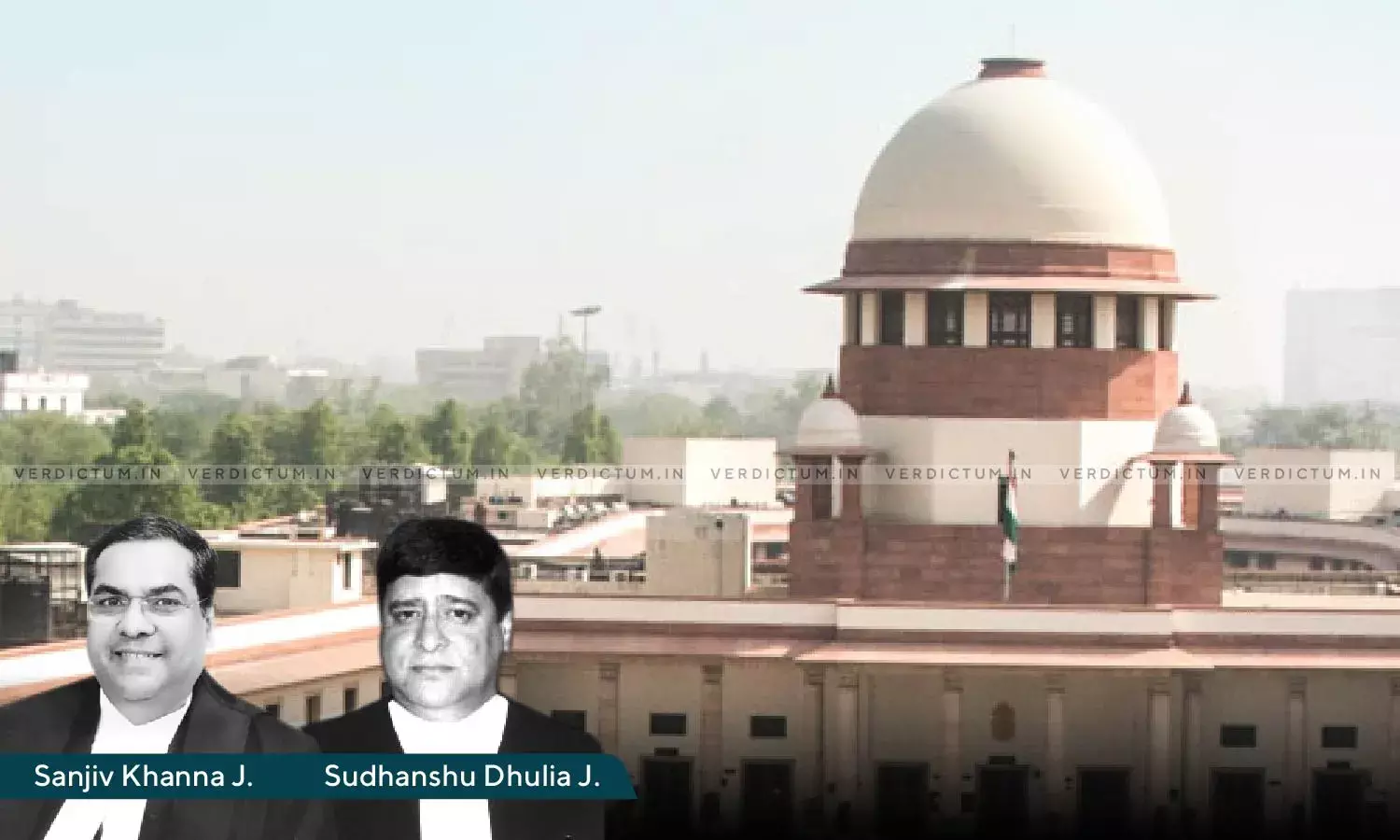For Applicability Of Section 34 IPC, There Should Be Community Of Purpose & Common Design Among Co-Perpetrators- SC

The Supreme Court observed that Section 34 of the Indian Penal Code, 1860 makes a co-perpetrator equally liable on the principle of joint liability and that common intention could be formed at the spur of the moment and during the occurrence itself.
The Bench of Justice Sanjiv Khanna and Justice Sudhanshu Dhulia observed that "For Section 34 of the IPC to apply, there should be common intention among the co-perpetrators, which means that there should be community of purpose and common design."
Senior Advocate Dr. Manish Singhvi appeared for the appellant State and Advocate Shailesh Singh appeared for the respondent.
In this case, the accused along with the other co-accused came armed with 'lathi', 'toka', 'axe', and 'gandasi' respectively, and had beaten and inflicted injuries on Teja Singh who died on the spot. The Trial Court convicted them for murder under Section 302 IPC. The Rajasthan High Court partly allowed the appeal filed by the respondent on the ground that common intention could not be inferred from his conduct, as he was only armed with 'lathi' and had struck only on the feet of the deceased.
In the Appeal, filed by the State against the order of the High Court, the Apex Court disagreed with the findings and observed that a common intention to inflict injuries and cause the death of the deceased, could be gathered from the conduct and action of the respondent.
The Apex Court further observed that "Section 34 of the IPC makes a co-perpetrator, who had participated in the offence, equally liable on the principle of joint liability. For Section 34 of the IPC to apply, there should be common intention among the co-perpetrators, which means that there should be community of purpose and common design. Common intention can be formed at the spur of the moment and during the occurrence itself. Common intention is necessarily a psychological fact and as such, direct evidence normally will not be available."
"Therefore, in most cases, whether or not there exists a common intention, has to be determined by drawing inference from the facts proved. Constructive intention, can be arrived at only when the court can hold that the accused must have preconceived the result that ensued in furtherance of the common intention." observed the Court.
The Apex Court, reappreciated the evidence on record, and held that the respondent along with all the other accused would be liable for the offence under Section 302 of the IPC, irrespective of the part played by them.
Accordingly, the Apex Court allowed the appeal and restored the conviction of the respondent under Section 302 IPC.
Cause Title- State of Rajasthan v. Gurbachan Singh
Click here to read/download the Judgment

